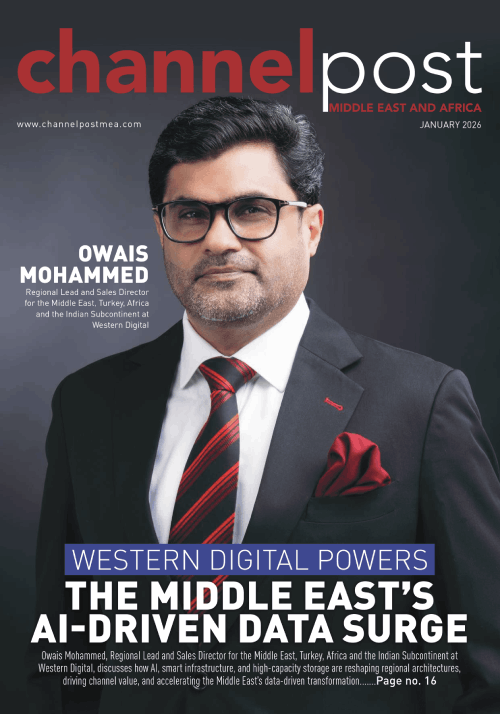From our smartphones to automobiles, life without AI seems impossible. Only with deep understanding can we see how much of an impact AI has made in our lives.
 There was a time when robots and supercomputers were only seen in sci-fi movies. But that is not the case anymore. These technology advancements contribute to progress thus making lives easier for everyone. AI and ML have already become an integral part of our lives. Scientists are working on realistic machines with human-like intelligence and thought process. In this article, we will be shedding light on the current advancements in AI and ML.
There was a time when robots and supercomputers were only seen in sci-fi movies. But that is not the case anymore. These technology advancements contribute to progress thus making lives easier for everyone. AI and ML have already become an integral part of our lives. Scientists are working on realistic machines with human-like intelligence and thought process. In this article, we will be shedding light on the current advancements in AI and ML.
Consciously or unconsciously we are all part of the AI business market. If you are one of the 320 million uses of Spotify or the 203 million users of Netflix, then you are interacting with AI. With powerful strategies of predictive analytics and tracking user behaviour, AI is playing an upper hand over humans understanding the human likings better. But what implications does AI has on business growth?

Future driven intelligence
From healing cancerous growth to automated cheque clearance in banks, AI is seen in all major business verticals. With this business growth, UAE is one of the front runners of applying AI in all the verticals. Research shows that UAE has invested over $2.15 billion in AI over the last 10 years. “AI market in the MEA region is finding new horizons, propelled by the investments made by governments and AI companies in this sector. Over a period of 10 years, from 2008 to 2018, AI investments in the MEA region have grown close to 200%. Organizations across this region are beginning to realize the global shift towards advanced technologies such as AI, RPA, and blockchain technologies.” says Aharsh MS, CMO, Accubits UAE.
He further added that according to PwC, the Middle East region is expected to accrue 2% of the total global benefits, equivalent to US$320 billion of AI by 2030. “In this interesting forecast, AI is expected to contribute over US$135.2 billion in 2030 to the economy of Saudi Arabia and the UAE is expected to see the largest impact of close to 14% of 2030 GDP.”

Sid Bhatia, regional director – Middle East, Dataiku believes that Artificial Intelligence has been one of the fastest-growing technologies in the last few years and these technologies are being used in a variety of situations across consumer, enterprise, and government markets. “Enterprise AI isn’t just a trend or something to be leveraged for one-off projects and use cases. The ability to become a true AI enterprise, by successfully scaling and employing robust data methodology at all levels of the company, is an organizational asset pivotal to the success of businesses of the future, no matter what industry,” he says. He elaborated on how companies that start today can build their capacity to leverage Enterprise AI.
UAE being a future driven country, invests and shows immense interest in fields that bring accelerated growth. UAE ranks ML as the most useful AI technology with a primary emphasis on decision support solutions. This is further followed by smart robotics and text analysis. UAE has a key focus on customer interactions which is evident from various customer satisfaction programmes and surveys.

“In the Middle East, we’re on the cusp of the Fifth Industrial Revolution. One that will largely be defined by the growth of artificial intelligence (AI), which has taken giant leaps in helping us accomplish tasks more quickly and efficiently. Although there is still so much more potential to make a positive impact, we are also mindful of how AI can be problematic. We’ve seen this in instances where voice recognition software has produced biases against female voices and crime-prediction tools have reinforced discriminatory policing.” says Thierry Nicault, Regional Vice-President, Middle East and Africa, Salesforce.
Zakaria Haltout, Managing Director, SAP UAE says that the Middle East has a strong AI market, especially thanks to government-led initiatives such as the UAE’s Ministry of State for Artificial Intelligence and the Kingdom of Saudi Arabia’s National Strategy for Data and AI. “Worldwide, about one-third of organizations are investing in new technologies to analyze data – and AI is the top technology, cited by 34 percent of these organizations, according to a recent study by Oxford Economics and SAP.”

Trendsetter in UAE
Time has passed when a simple cough or cold was fatal to mankind. As discussed earlier, the AI and ML field has developed so much that even cancerous growth in the human body could be removed using this next-generation technology. In the global AI market, the Healthcare industry is said to make the most out of AI. This is has happened ever since the Industrial Revolution 4.0. This sector uses a partnership of AI complimenting ML, IoT and Big Data.
But we are coming across a different trend in the UAE market. Here, we are seeing a demand for AI and ML in BFSI and the government sector. “FSI (Financial Services Industry) has always needed one of the most precise forms of computing systems in place for a myriad of purposes. As far as AI and ML are concerned, the FSI sector relies heavily on the systems powered by these technologies to detect fraudulent transactions and pave the way for a safer and more secure online transaction,” said Bhatia.
He further added “For the last few years, the focus of players in the banking industry has been on client life-cycle management. When it comes to gaining comprehensive insights into their customers, banks are ahead of the curve as compared with any other industry. Customer analytics in banking helps banks gain granular insights on current and upcoming requirements of their customer base.”
Aharsh of Accubits backs this point and says, “Based on what we have noticed, the BFSI sector is driving the most demand for AI in the MEA region. AI-powered process automation solutions such as automation of cheque clearance in banks, document reconciliation, etc have proven to save tons of money for financial institutions. Apart from the BFSI sector, the public services sector is also driving a major demand for AI solutions. In the public services sector, AI-powered real-time video analytics solutions such as traffic and crowd analytics solutions, automated anomaly detection systems are the most demanded.”
Bhatia also states that apart from FSI, the Public Sector has a key focus on Machine-learning powered initiatives; the fact remains that Machine-learning algorithms, sometimes referred to as predictive analytics or artificial intelligence, can also help governmental organizations make more accurate decisions.
Channel and market opportunities
When partners offer technical and industrial expertise along with the skills, the channel becomes the main part of the AI/ML execution plan for the customers. This is something vendors and channel partners work rigorously on. Dataiku sees the biggest opportunity for the partners in the ML & AI space. “For organizations just beginning their Enterprise AI journey, the efficiencies gained from automation mean that streamlining processes for routine reporting is often the lowest-hanging fruit when it comes to project selection. But as teams become more experienced, it’s important to ensure innovation isn’t limited to simply improving existing processes. Companies are looking to build data and analytics teams to create new, disruptive data products.” says Bhatia.
Haltout says that in the Middle East, while CIOs understand the business benefits of AI, the actual deployments are still in their earlier stages. Channel partners need to be both knowledgeable and experienced in AI projects, which can mean working with their offices in other markets to exchange best practices. “One of the best strategies is for partners to develop proofs of concept and to start with smaller AI projects and then build out from there. Channel partners need to be aligned with the leading technology vendors, and some may want to specialize in certain industry verticals that will see growth in AI in the coming years,” he added.
UAE is one of the best potential AI/ML market any vendors and channel partners need to tap into this market. It is important to have a sound technical team with deep expertise in AI technologies to reach this market with the best potential. “Its not just be confined to one or two technologies, but should gain expertise in all prominent technologies like machine learning, deep learning, NLP & NLU, Neural networks, computer vision, etc. The reason is that to build effective AI solutions or products, one would need to use a mix of different technologies to complement the limitations of others,” adds Aharsh.
What used to be a buzzword until a few years back is now the most sought after technology for many industries. With even having left a huge social impact, AI is a dominant technology not to be overlooked by any.












